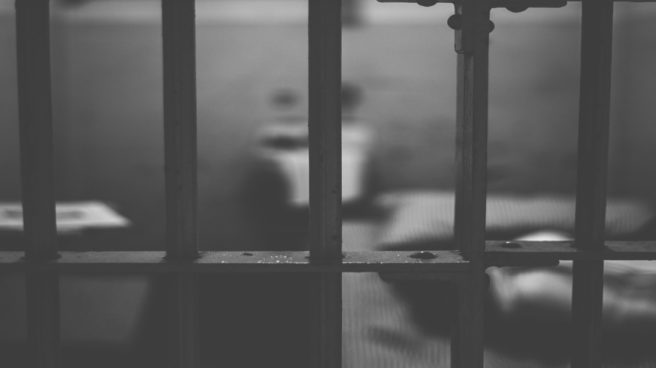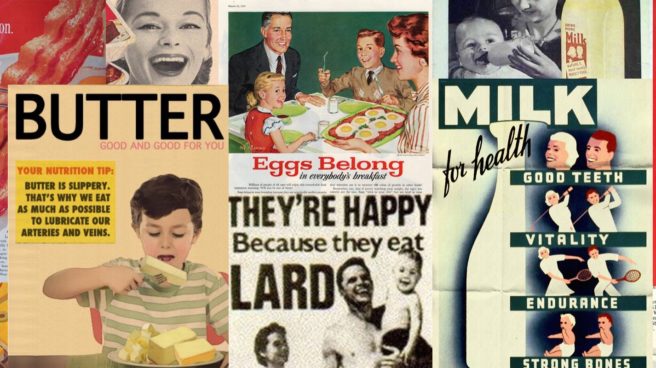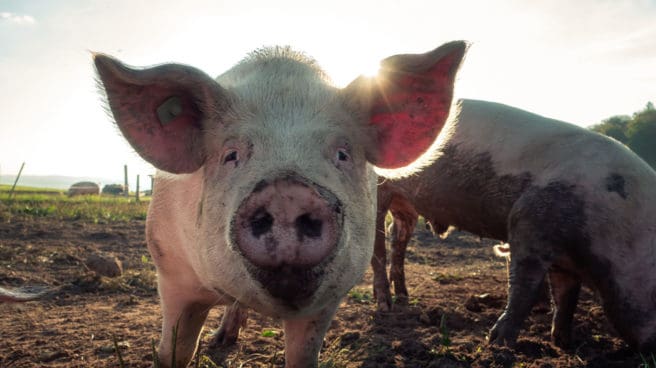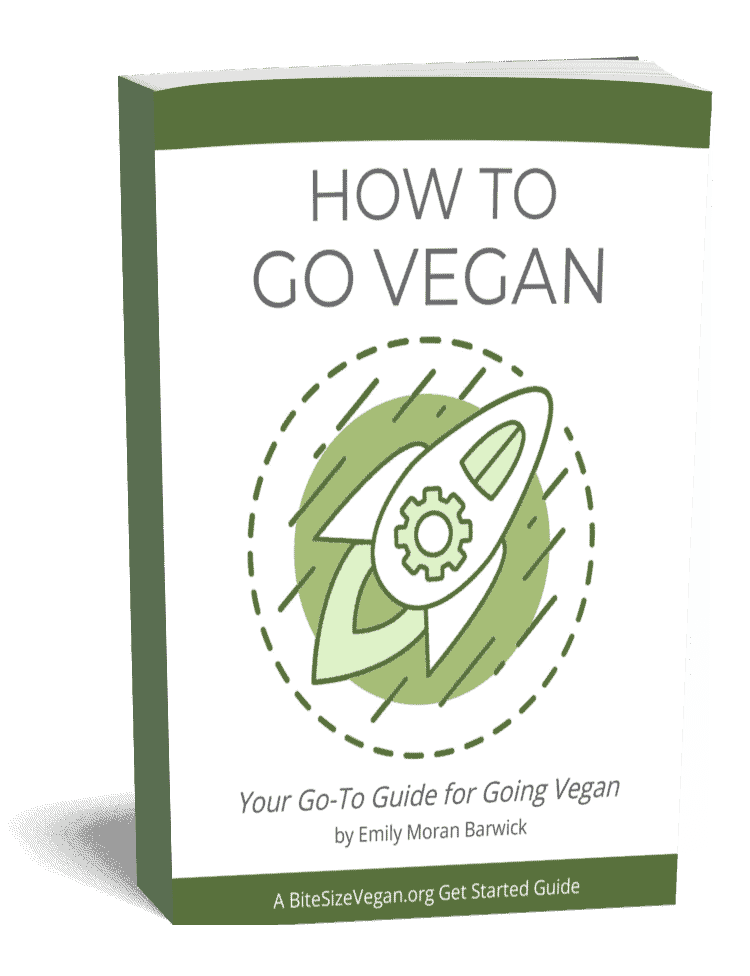What happens when compassion is a crime? Activist Anita Krajnc found herself facing 10 years in prison for giving water to the thirsty. In this interview, Anita shares powerful words about the importance of her trial.
November 1, 2016 marked the 22nd year of celebrating World Vegan day and, appropriately enough, the resumption of the criminal trial in Canada that’s thrust animal rights and veganism onto the international stage.
Animal activist and co-founder of Toronto Pig Save, Anita Krajnc, is facing 6 months in jail and a $5,000 fine for giving water to thirsty pigs on their way to slaughter. For more details on the incident itself, please see my interview with Anita from January 2016.
Just prior to the November 1 court date, I spoke with Anita and James, another key organizer for Toronto Pig Save—and the man behind Twitter’s Veganoso—about the trial’s proceedings and impact thus far.
The defense in this case, led by vegan lawyers Gary Grill and James Silver, has taken a unique approach:
Anita: The key defense we’re using is the idea that everyone has the duty to bear witness. That’s our defense. Right at the beginning when I testified I said our mission is to create a nonviolent vegan world, to promote the idea that everybody has a duty to bear witness and to promote a cultural shift so that people no longer think it’s ok to say, “I don’t want to see.” “It’s too hard.” “It might change how I eat.” and then people say that’s an acceptable answer.
We want to actually promote a cultural shift where people say, that “I want to live up to my duty to bear witness. I want to bear witness.” And the way we’re sort of presenting it is that, as animal lovers, we’re willing to suffer and willing to sacrifice in order to promote social change.
So saying something like “Oh it’s too hard to look” or “I am going to have an emotional breakdown”—that’s ok. It’s actually ok to suffer in order to help animals, ‘cause the history of social change has occurred because of that, and people like Leo Tolstoy and Mahatma Gandhi tried to redefine or reinterpret the notions of self-sacrifice and suffering. Because that’s how social change happens.
At our trial, when we talk about animals, we talk about animals as individuals and not as property. The classic, sort of, line from the driver in this incident was, “They’re not human.” I said “If they’re thirsty, give them water” and he said “they’re not human.”
James: And if there was a dog in a hot car it would be a duty to help that dog, to break the window to let the dog out. So there’s no fundamental difference between a dog and a pig so why would there be a different standard on how you treat pigs?
This is not just a convenient analogy. The same year Anita was charged for giving water to dehydrated pigs, a woman in British Columbia was sentenced to jail for the death of six dogs she left in her truck on a hot day.[1] The truck driver who confronted Anita was hauling 190 pigs[2] in severe heat without any access to water or adequate ventilation.[3] That year, in Canada alone, 14,212 pigs died on their way to slaughter.[4]
Anita: And then we quoted Tolstoy, saying “when we wish to harm others we really do evil to ourselves.” That one line brings together all the arguments that we had. So there’s a unity of life— we’re all equal. Animals are individuals just like we are and deserve respect and love. And if we don’t treat them that way, we’re hurting animals, but we’re also going to destroy the planet.
I asked Anita and James to share any memorable or powerful moments from the trial thus far:
Anita: There were a number of memorable times in court. I think when my lawyer—vegan lawyer—James Silver cross-examined the truck driver, Jeff, he was able to establish the real motivation for charging me. And that was, that they wanted to shut us down. So he established how much money the industry makes, how much that factory farm makes, what were the discussions and why were they concerned about us.
Yes, he wasn’t concerned about what was in the water or that I gave water—because I offered him a free sample. What was really behind this was the motivation that we were hurting the bottom line of the industry. It was such an incredible moment, you know, the truth was revealed.
And then another amazing moment was when he cross-examined the farmer, Mr. Van Boekel, about how the sows were treated, and I got some of the most heartbreaking moments because he talked about how he had hundreds of sows and they were in these crates where they can’t turn around, their babies were taken away, and then they were put back into a general pen and then within five or six days they were re-impregnated. And then again.
So their life was a constant cycle, it was just heartbreaking. There were so many moments that were very revealing. When I testified, there were a lot of moments that I found very memorable cause I was able to say what I really thought and believed.
What really got me was we were able to show the pig preserve video. It just shows who pigs are. It was like a 13-minute video. I was just so happy we got to show that, and then after that we showed footage of the gas chamber.[5] To me, like the truth—we’re telling the truth, and so for me those were high points.
James: I think for me, the whole case has been so captivating. The level of interest—every day the courthouse has been packed, there’s been people waiting outside trying to get in. In terms of content, just the lack of emotion and lack of empathy from their side has been quite disturbing. Because they’re watching the same images that we’re seeing on the screens and the disconnect I think is so strong of people that work in the industry.
Anita: Mr. Van Boekel and maybe ten or so farmers came to my trial date when I testified. It was a packed courtroom, people were sitting on the floor and people were watching the farmers and you know, sometimes they were sort of like joking about it, things like that.
But when the pig preserve video was shown: who pigs really are, they were paying attention. Richard Hoyle is an ex marine and pigs were shown in a different light of who they really are.
And I think it touched some of them. I believe that this pig trial is touching some of them. The pig trial was presenting the truth and at the end of the day, that’s what’s going to change the world. And I believe we even touched the factory farm industry. And there was one article in an animal ag. magazine that said ‘Mr. Van Boekel is fighting this alone. Where’s the pork council? Where are they?’
And I think this is such a strong case that they have a lot of trouble defending.
That’s the incredible thing about this trial. It has managed to place the prosecution on the defense, and the rights and individuality of non-human animals at the center of debate. Anita’s lawyers have called a handful of expert witnesses throughout the trial so far. As this interview was filmed prior to the November 1 session, I’ll include live tweets of the testimony onscreen for the witnesses that day.
Anita: Dr. May is a veterinarian and she was the first expert witness to testify. And one of the most revealing parts of her testimony was, she looked at the video, where I gave water to the pigs, and then she counted the number of pants and she said some of the pigs were panting at 200 pants per minute. She said they were in severe distress.[6]
On November 1st we have two expert witnesses. Dr. Lori Marino, she’s going to talk about pig personality, intelligence, sentience.[7] She’s a foremost cognitive behaviorist.
Then we have Dr. David Jenkins. He’s a professor at the university of Toronto. He invented the glycemic index. And he’s an outspoken vegan. And he will be talking about the health benefits of a plant based diet and the incredible health impacts of eating meat, dairy and eggs.[8]
And then finally on November 10th we will have our expert witness on the environment Dr. Tony Weis who’s a professor of geography at the University of Western Ontario.[9] And he’s going to talk about the impact of animal agriculture on climate change, ocean dead zones, deforestation, species extinction, water use, water pollution and other issues.
The Pig Trial has drawn the attention and support of celebrities like vegan musician, DJ, photographer and animal activist Moby,[10] actress and model Maggie Q,[11] who stood in solidarity with Anita on November 1, and the founder of PETA, Ingrid Newkirk, who has flown out to Toronto for the trial to show her support.[12]
The broad exposure of the trial speaks to the two primary goals of The Save Movement: to bear witness to the individuals suffering in the trucks and to document the experience to share with the world. Having myself attended a number of vigils with Toronto Pig Save, and Manchester and Essex Pig Saves in the UK, I can personally attest to the incredible impact of bearing witness and publishing the images for the world to see.
Anita: We want people to see what we see and when we look inside a truck we see individuals, pigs, cows and chickens who want to live.
James: When you show the victims, when you see their faces, when you look in their eyes and you see them as individuals it really helps people connect and have empathy.
Anita: When any of us are at vigils, and we go up to the pigs or the cows or the chickens and bear witness we have a camera in hand. So we’re there for the individual, we’re present, we say “we love you we’re sorry.” We see the individual before us but we also have a camera in hand because we’re trying to change the world thinking and we’re thinking about broader issues as well. Because of the pig trial we’re getting these images in the mainstream media—they even looped the video of the incident when I was charged from June 2015 on mainstream television.
Two days day after Anita’s testimony at trial, a truck overturned outside of Fearmans pork, the slaughterhouse at which Anita was charged. We’ll hear more about the actual event later in this video. Anita spoke to the effect of the crash on the media.
Anita: There’s been learning in the media. I think the media has got more and more sympathetic as the pig trial has gone on and when we had that horrible crash a few days after I testified at the pig trial it just had unprecedented coverage because usually the coverage is either to ignore it or to say no one was hurt, the driver wasn’t hurt and this time the media was there and I think there was incredible learning.
We told all our activists “Go to the site and document.” See if that pig crash happened and there were no activists that went on site it would not have been as big a story and it wouldn’t have been reported as sympathetically.
One news reporter said that this incident had changed her life and that she wants to go vegan. There was another cameraperson from a huge television station that said he was vegan and his whole family was vegan. So I think we’re definitely—the vegan movement is spreading in the mass media and it’s just an indication that it’s spreading across all sectors of society.
The Pig Trial has managed to elicit support and empathy even from meat-eaters. I asked Anita and James why this case is reaching people when nothing else has:
Anita: By and large the public is sympathetic. It’s the idea of defending the Golden Rule. So: “treat others as you’d like to be treated.” Leo Tolstoy said we should take pity on animals the same way we take pity on each other if we are not to deaden the voice of conscience.[13]
So people understand across cultures and you know the Golden Rule is thousands of years old. So the animal agricultural industry cannot fight the Golden Rule. And that’s what they tried to do and it’s backfiring.
While Toronto Pig Save has been holding vigils and posting images of animals on their way to slaughter for five years now, this is the first time they’ve gained international coverage, and with an impressive reach and momentum at that. Anita and James spoke to what they saw as the driving force behind this growth:
Anita: First of all the incident in and of itself, it’s the best possible incident you can charge someone on, like, giving water to a thirsty animal. So yes that’s an incredible incident, but the other factor is the fact that we are organized. You know the reason this is so big is because there’s a social movement here, it’s not just some random woman who gave water to thirsty pigs and was charged. No. They charged an organizer. They charged an organizer who’s part of an organizing team that’s across Toronto. And now there’s a global movement—there’s like almost 90 save groups around the world, 21 new save groups started in the United Kingdom.
We have people like grandmothers, babies—we have hundreds of people that come to our vigils. Like our biggest vigil was when you, Bite Size Vegan first came to one of our vigils. That was our biggest vigil back in September 24, 2015. On that day we had almost 300 people. So that was our biggest vigil to date. Since then we’ve grown and grown and grown. That’s the reason we’re getting great coverage.
And I think it has to do with also with the trial. A trial is something I think that the media can report on. It’s hard for them to just cover our vigils, we’ve been doing this for more that 5 years. Why are we getting mainstream media coverage now? Why are we getting international coverage? It had to do with the trial. So now our images are getting out there, the ones that we’ve had all this time.
At the end of the day the news coverage was that this pig trial put animal agriculture on trial.
James: Sometimes it’s almost like you forget that it’s Anita on trial because of the whole sense of someone there having to defend the truth of what they do because it’s just so abhorrent.
In our global society, there is a profound reversal of right and wrong surrounding our food system. Eating a vegan diet is viewed as extreme. Animal lovers readily consume the bodies of sentient beings whom they would not be able to bring themselves to harm.
For the animal products industry, so desperately reliant on deception and untruths, there’s nothing more dangerous than giving the voice of the animals they systematically abuse and kill, an international stage for their truth to be heard.
Emily Moran Barwick
A horrifically clear example of the laws protecting the criminal whilst criminalizing those fighting to save the victims, came on October 5, 2016. The day the truck crashed at Fearmans.
Anita, fresh from her testimony in court two days before, was promptly arrested again not long after her arrival at the scene. She had refused to step back from documenting the incident.
I asked James to share some of his experience. He alludes to a pig named Bonnie, whose story you can hear more in depth in the video dedicated to the crash:
James: As soon as I parked my car and got out, you could hear the pigs screaming. There was blood on the sidewalk. Some pigs had escaped. I my naïveté, I expected to find people that are helping the pigs and that wasn’t happening. There were people; office workers, that were holding cardboard to shield the truth from us. The cops were complicit in that. It got worse after Anita left. I don’t know what they’re called, but special unit cops arrived with tasers and it was all around hiding the truth.
We didn’t see this, so we don’t know, but no injured pigs came off the truck so they must have killed a lot of pigs because when I got there the screaming was the worst screaming and we had heard them screaming every single week. It was the worst screaming I had ever heard. And they walked was it forty or fifty pigs off the truck. They shot Bonnie in front of us but there were no other injured pigs so I strongly suspect they killed a lot of the pigs on the truck because all that screaming suddenly stopped. I mean people are compassionate and people have empathy. This is why animal agriculture has spent so much time and money and effort into shielding the truth because if people knew what’s happening they would make the change they would go vegan. They would not support and pay for this to happen
And that’s precisely what the Pig Trial is accomplishing. In reality, it’s not so much that Anita or her lawyers or Toronto Pig Save came up with some revolutionary argument never before voiced by animal activists.
When it comes to veganism and the rights, emotions, individuality, and capacity to suffer of non-human animals, it’s not a lack of compelling evidence but rather a lack of a large enough platform that hinders the reach of the message. And unbeknownst to the truck driver and farmer on that oppressively hot day in June 2015, by confronting and having Anita charged, they supplied that platform.
For the animal products industry, so desperately reliant on deception and untruths, there’s nothing more dangerous than giving the voice of the animals they systematically abuse and kill, an international stage for their truth to be heard.
It’s time to expose the real crimes and the real criminals.
Please share this video far and wide to raise awareness and give it a thumbs-up if you are moved by these events. And subscribe to the channel for more vegan content every week. To help support Bite Size Vegan’s educational efforts, please see the support page or join us in the Nugget Army.
Now go live vegan, speak the truth, and I’ll see you soon.
— Emily Moran Barwick







Wonderful Emily, thank you! The truth will not be silenced! Sharing far and wide!!! ??✌?️??
Thanks for the update!